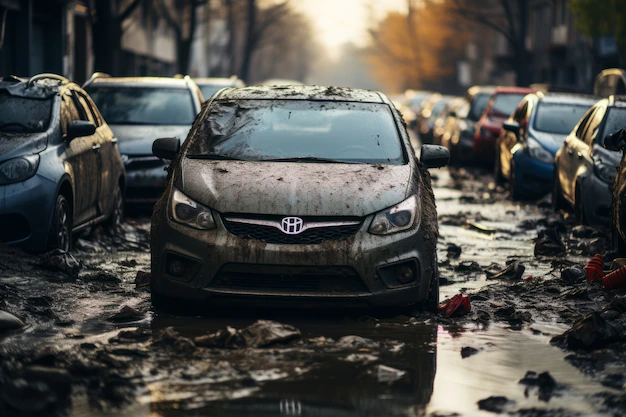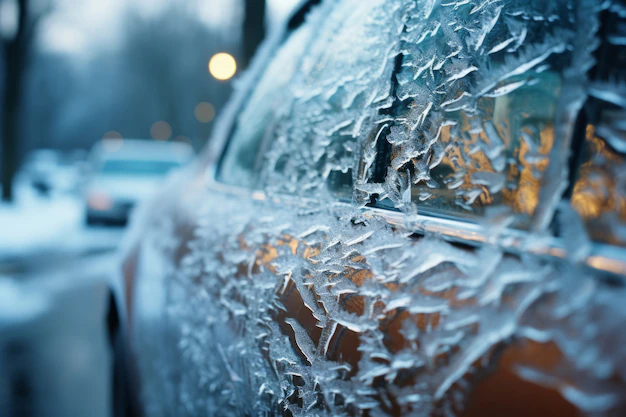How to Clean a Car’s Exterior Without Washing & Using Chemicals! Car care enthusiasts want to keep their cars clean without harsh chemicals or excessive cleaning. This article will cover eco-friendly, chemical-free automobile exterior washing. This method protects your car’s paint and finishes while being environmentally friendly.
Cars look better and are protected from dirt, grime, and pollution when they are clean. Green and water-conservation automobile washing techniques may clean your car’s exterior without harsh chemicals.
Today’s ecologically concerned automobile owners want eco-friendly vehicle maintenance. Traditional vehicle cleaning procedures, which use lots of water and harsh chemicals, may pollute the environment. Fortunately, there are various excellent non-water and chemical automobile exterior cleaning solutions.
How can I disinfect my vehicle, and How to Clean a Car’s Exterior Without Washing & Using Chemicals
10 items from around the house that may be used to clean your vehicle
It is easier than you would think to How to Clean a Car’s Exterior Without Washing & Using Chemicals.Car Detailing Tools for Beginners Guide 2023-24 Adopting these commonplace things is a method that is both effective and kind to the environment:
- Ten Ordinary Items to Wash Your Car
- Of course! The following ten everyday objects may be used to clean your car:
- White vinegar is a great all-purpose cleaner for stains, windows, and other surfaces.
- Baking soda may be used as a mild abrasive and to deodorize carpets and upholstery.
- Lemon: Removes stains well and leaves a clean aroma.
- Olive oil is the best for shining and polishing surfaces.
- Grease stains on carpets and upholstery may be removed using cornflour.
- Club Soda: Aids in stain removal and window cleaning.
- Tea bags: Absorb bad smells from inside the vehicle.
- Use fabric softener sheets to give surfaces a new, clean smell quickly.
- Coffee Grounds: Removes smells from the inside of cars.
- Microfiber cloths are ideal for non-scratching, dusting, cleaning, and polishing surfaces.
- These commonplace products are inexpensive and environmentally beneficial alternatives for maintaining a clean and odor-free automobile.
There is no need to resort to harsh chemicals to make your vehicle shine like new with these everyday heroes!
Chemical-free cleaning is gaining popularity due to environmental concerns and the desire to protect a How to Clean a Car’s Exterior Without Washing & Using Chemicals causing harm. The traditional use of chemical-laden cleaners can adversely affect the ecosystem and the longevity of your vehicle’s aesthetic appeal.
Essential Tools for Chemical-Free Cleaning

Cleaning the automobile using microfiber towels, known for their soft touch, is an effective way to remove grime without damaging the paint. Waterless cleaning solutions developed for environmentally friendly practices are available to completely clean a Car’s Exterior Without Washing & Using Chemicals without harsh chemicals. Furthermore, a brush with soft bristles is beneficial when addressing certain regions.
These instruments, when used together, contribute to a cleaning procedure that is both environmentally friendly and effective, leaving your vehicle looking shining without causing any harm to the environment.
Step-by-Step Guide: Cleaning Without Chemicals
- Preparing the Surface:Remove loose dirt and debris with a soft brush.
- Using Waterless Cleaning Solutions: Apply waterless solutions sparingly for optimal results.
- Techniques for Different Parts: Tailor your approach for the body, wheels, and windows.
Consideration Before You Start
Before embarking on a waterless car wash, it’s essential to consider the following factors:
- If your vehicle is really dirty and grimy, you may want the services of a conventional car wash. Waterless vehicle wash procedures, on the other hand, have the potential to be efficient for light grime, dust, and dirt.
- This is the kind of vehicle: The use of waterless car wash procedures is usually considered safe for all automobiles; nevertheless, it is always a good idea to examine the owner’s handbook of your vehicle for particular safety guidelines.
- Depending on the weather, waterless vehicle wash procedures are most effective in shaded regions on days with moderate temperatures. It is best to avoid washing your vehicle in direct sunshine or when the temperature is too high or low.
Pros and Cons of Waterless Methods Clean a Car’s Exterior Without Washing & Using Chemicals

Pros:
- Environmentally friendly: Waterless car wash methods conserve water and reduce the use of harsh chemicals.
- Convenient: Waterless car wash methods can be done anywhere and don’t require access to a water source.
- Time-saving:Waterless car wash methods are typically quicker than traditional car washes.
Cons:
- May not be effective for heavily soiled vehicles:WaterlessClean a Car’s Exterior Without Washing & Using Chemicals may be unable to remove stubborn dirt and grime.
- Requires more elbow grease:Waterless car wash methods require more effort than traditional car washes.
Key Point Advantages
- Eco-friendly: Waterless car wash methods significantly reduce water consumption and chemical usage, minimizing environmental impact.
- Convenient and Time-saving:Waterless car wash methods can be performed anywhere without a water source, saving time and effort.
- Protects Car Paint:Waterless car wash methods often use microfiber cloths and gentle cleaning solutions, preventing scratches and preserving the car’s paint.
- Cost-effective: Waterless Clean a Car’s Exterior Without Washing & Using Chemicals car wash kits are generally affordable and can be used multiple times, making them a cost-effective alternative to traditional car washes.
Disadvantage

- Although they are excellent for removing light, dirt, and dust, waterless car wash systems may have difficulty removing persistent debris and grime. This means that they are not suitable for heavily soiled vehicles.
- Using waterless Clean a Car’s Exterior Without Washing & Using Chemicals techniques often requires more physical labor than conventional car washes, particularly for motor vehicles of a bigger size.
Conclusion
Waterless vehicle wash procedures provide an alternative to conventional car cleaning practices that are both more convenient and less harmful to the environment. Without having to depend on water or harsh chemicals, automobile owners can adequately clean their Clean a Car’s Exterior Without Washing & Chemicals! using microfiber cloths, soft cleaning solutions, and the appropriate method. These procedures not only help to save resources and lessen the effect on the environment, but they also save time and safeguard the paint finish of the automobile.
FAQ’S
What can I clean the outside of my car with?
Dish soap is designed to cut through grease, removing most paint or glass protection products previously applied. Mixing an ounce of dish soap per gallon of water creates a powerful car wash shampoo that can remove most contamination from the paint or glass.
Is baking soda safe for car paint?
Baking soda is agentle abrasive, so it’s the perfect choice for removing tree sap and bugs from your Clean a Car’s Exterior Without Washing & Using Chemicals to damage the finish. Dip a damp cloth in some baking soda and use a circular motion to remove those nasty little blemishes.
Is toothpaste OK for car paint?
Toothpaste polishes down the rough surface of your automobile’s glossy sheen and fills the space. Toothpaste is abrasive enough to deal with foreign paint marks but gentle enough not to Clean a Car’s Exterior Without Washing & Using Chemicals. Toothpaste is a sanding tool similar to a lighter, softer form of sandpaper.

